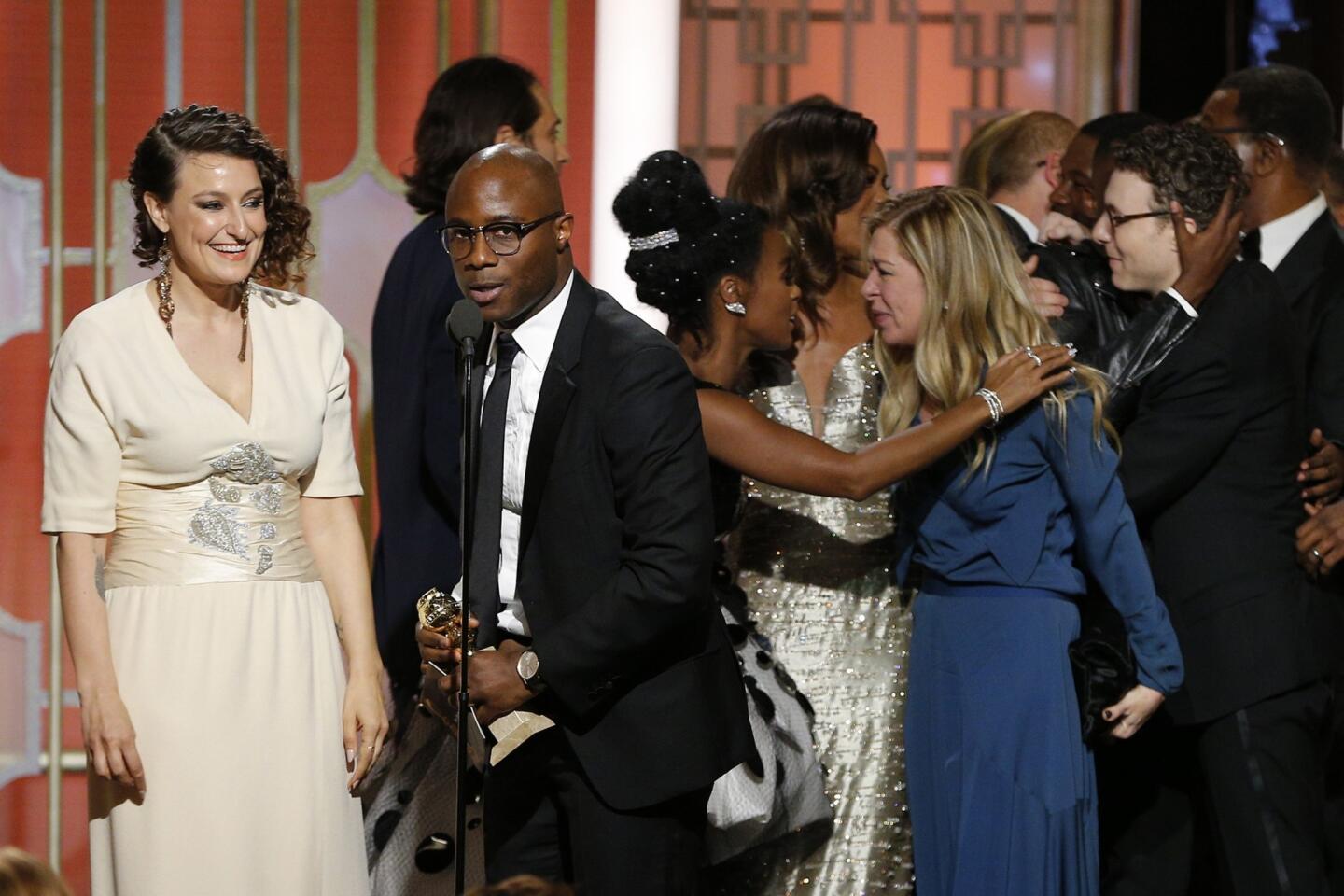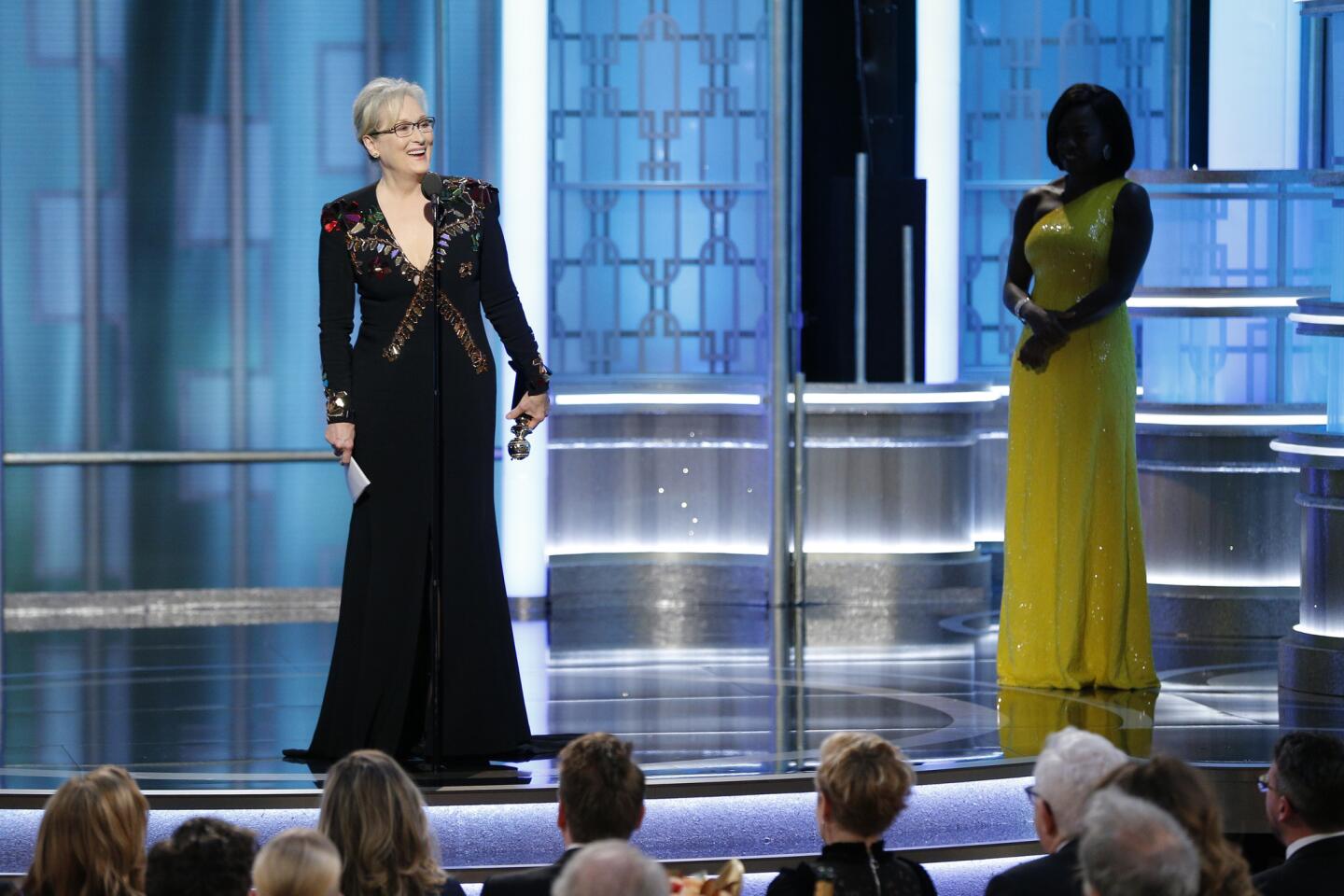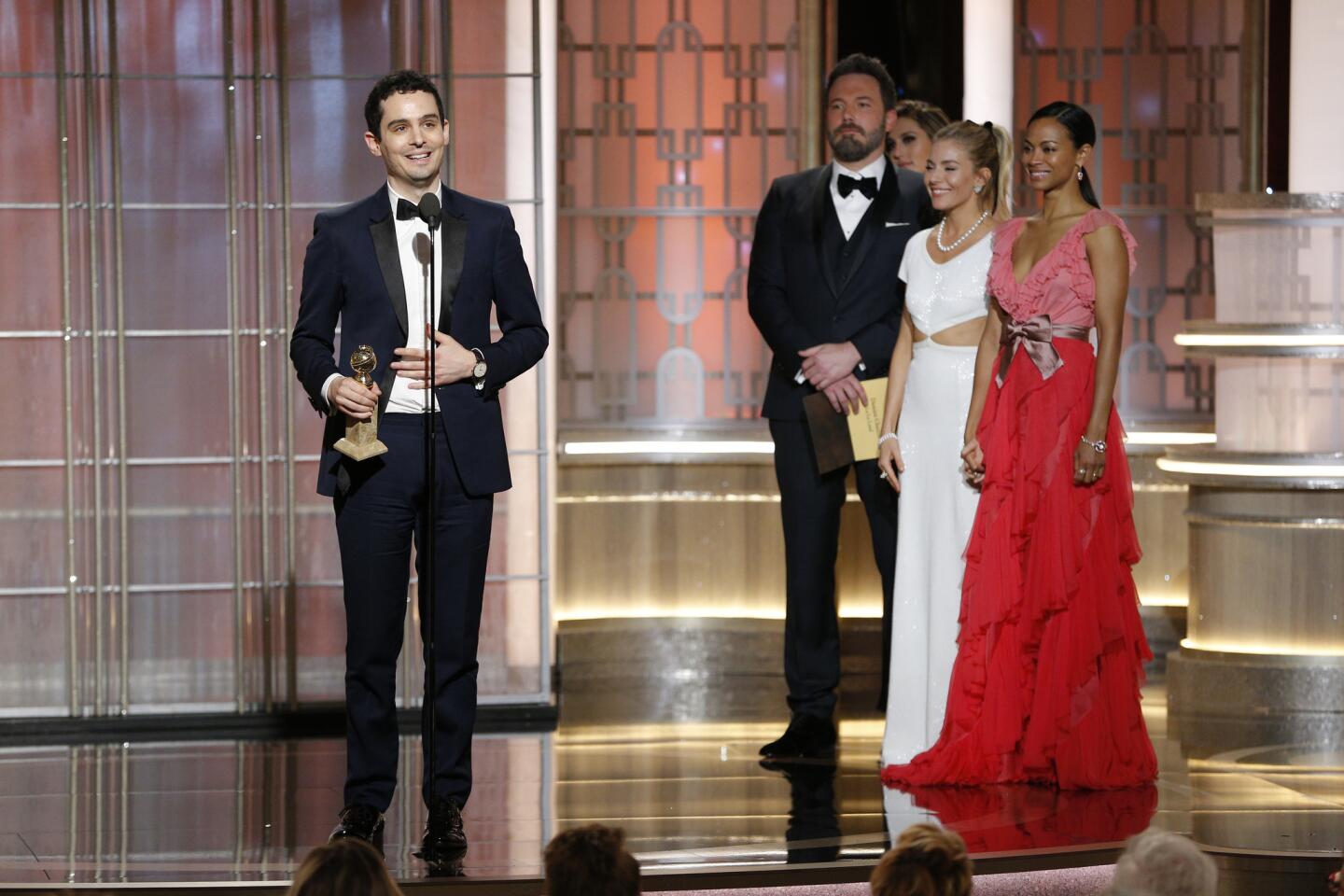Commentary: With a âLa La Landâ sweep, Hollywood once more falls in love —Â with itself
We were warned not to miss a moment of Jimmy Fallonâs Golden Globes opening number, which some had accurately predicted would be an extended tribute to âLa La Land.â And why not? Damien Chazelleâs charming movie musical naturally lends itself to the kind of elaborately parodic sing-song re-creations that awards-show openers (to say nothing of Fallonâs late-night hosting career) thrive on.
Sure enough, the showâs big kick-off number found Fallon staging an elaborate riff on âLa La Landâsâ traffic-stopping opening sequence, for which he roped in a dizzyingly random range of performers from Nicole Kidman and Amy Adams to Kit Harington, Rami Malek and the âStranger Thingsâ kids (plus Barb). It was funny, clever, virtuosic. It also sent a worrying early signal that the decks were already being stacked in favor of the nightâs biggest crowd-pleaser.
I get it â a âHacksaw Ridgeâ-themed musical number just wouldnât have killed in quite the same way. And few of those watching could have begrudged the expected lead acting awards for the filmâs luminous stars, Emma Stone and Ryan Gosling, or the dual wins for composer Justin Hurwitz, who was feted for his infectiously hummable original score and the movieâs signature tune, âCity of Stars.â
Full coverage: Golden Globes 2017 Âť
But then Chazelle won awards for director and (more questionably) screenplay, beating out Barry Jenkins (âMoonlightâ) and Kenneth Lonergan (âManchester by the Seaâ) in both categories. By the time âLa La Landâ received its record-setting seventh Globe, for best picture (musical or comedy), it was hard not to feel that Hollywood had fallen in love â and not just with a movie, but with yet another intoxicating vision of itself.
âLa La Landâ is both a ravishing throwback to Old Hollywood and a moderately jaded fairy-tale riff on contemporary Hollywood, a story about two aspiring entertainers falling in love against the jazz clubs and studio backlots of a gloriously retro Los Angeles. This all-sunshine-all-the-time milieu is nothing if not inviting â more inviting, surely, than the mean Miami streets of âMoonlightâ or the frosty New England town that gives âManchester by the Seaâ its title. But it also raises the question of whether, in that small arena where art and awards shows occasionally intersect, the most palatable and self-promotional choice is necessarily the most deserving.
This is an industry that loves to celebrate the industry, a point driven home in recent years by the awards-season supremacy of entertainments like âThe Artistâ and âArgoâ â one a loving pastiche to the silent-movie era, the other a thriller in which Hollywood saves the day â which both picked up top Golden Globes en route to their big Oscar wins. Like âLa La Land,â they are ingratiating entertainments that have, through little fault of their own, become part of a dispiriting larger trend. Awards season is already enough of a roundelay of self-congratulation when it doesnât routinely hand over its top prizes to a flattering mirror image.
I donât subscribe to the reductive notion that seriousness is inherently more award-worthy than escapism â or, for that matter, that escapism can never be serious. And I have, in the past, felt moved to defend the Hollywood Foreign Press against its not-always-deserved reputation for frivolity, especially since it has, at times, beaten the academy at its own game. This is, after all, the organization that handed best picture Globes to âBoyhood,â âThe Social Networkâ and âBrokeback Mountain,â all choices that look awfully good next to their Oscar-preferred counterparts.
And the show did eventually get around to acknowledging the presence of other worthy films in âLa La Landâsâ midst. They included âFences,â for which Viola Davis finally won her first Golden Globe, and the devious French thriller âElle,â which not only was named best foreign-language film but also pulled off a magnificent upset in the lead dramatic actress category for Isabelle Huppert.
We should tell the truth, our stories, more often and more consistently.â
— âMoonlightâ director Barry Jenkins
And in the end, the HFPA managed to spare a thought for the actual best movie nominated. âMoonlightâ may have come away from the show with at least two fewer awards than it should have had (including a supporting actor prize for Mahershala Ali, which went instead to Aaron Taylor-Johnson for âNocturnal Animalsâ), but the filmmakers couldnât have minded too much after winding up with the nightâs biggest prize.
âWe should tell the truth, our stories, more often and more consistently,â Jenkins said backstage, and his words should be taken to heart â not least because his definition of âourâ right now seems so much bigger and more inclusive than that of the industry honoring him.
ALSO:
Golden Globes 2017: Complete list of winners
A better behaved Golden Globes proves nice-guy host Jimmy Fallon can still make some noise
More to Read
Only good movies
Get the Indie Focus newsletter, Mark Olsen's weekly guide to the world of cinema.
You may occasionally receive promotional content from the Los Angeles Times.














